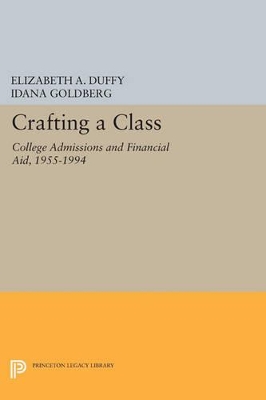Admissions and financial aid policies at liberal arts colleges have changed dramatically since 1955. Through the 1950s, most colleges in the United States enrolled fewer than 1000 students, nearly all of whom were white. Few colleges were truly selective in their admissions; they accepted most students who applied. In the 1960s, as the children of the baby boom reached college age and both federal and institutional financial aid programs expanded, many more students began to apply to college. For the first time, liberal arts colleges were faced with an abundance of applicants, which raised new questions. What criteria would they use to select students? How would they award financial aid? The answers to these questions were shaped by financial and educational considerations as well as by the struggles for civil rights and gender equality that swept across the nation. The colleges' answers also proved crucial to their futures, as the years since the mid-1970s have shown. When the influx of baby boom students slowed, colleges began to recruit aggressively in order to maintain their class sizes.
In the past decade, financial aid has become another tool that colleges use to compete for the best students. By tracing the development of competitive admission and financial aid policies at a selected group of liberal arts colleges, Crafting a Class explores how institutional decisions reflect and respond to broad demographic, economic, political, and social forces. Elizabeth Duffy and Idana Goldberg closely studied sixteen liberal arts colleges in Massachusetts and Ohio. At each college, they not only collected empirical data on admissions, enrollment, and financial aid trends, but they also examined archival materials and interviewed current and former administrators. Duffy and Goldberg have produced an authoritative and highly readable account of some of the most important changes that have taken place in American higher education during the tumultuous decades since the mid-1950s. Crafting a Class will interest all readers who are concerned with the past and future directions of higher education in the United States. Originally published in 1997.
The Princeton Legacy Library uses the latest print-on-demand technology to again make available previously out-of-print books from the distinguished backlist of Princeton University Press. These editions preserve the original texts of these important books while presenting them in durable paperback and hardcover editions. The goal of the Princeton Legacy Library is to vastly increase access to the rich scholarly heritage found in the thousands of books published by Princeton University Press since its founding in 1905.
- ISBN10 0691603553
- ISBN13 9780691603551
- Publish Date 14 July 2014 (first published 23 November 1997)
- Publish Status Active
- Publish Country US
- Imprint Princeton University Press
- Format Paperback (US Trade)
- Pages 322
- Language English
- URL https://press.princeton.edu/titles/6217.html
